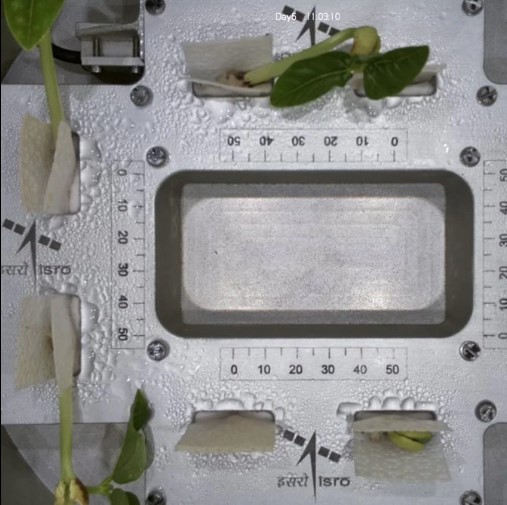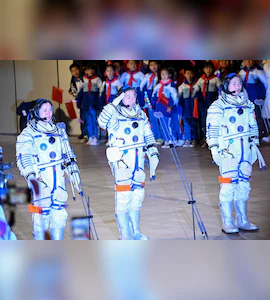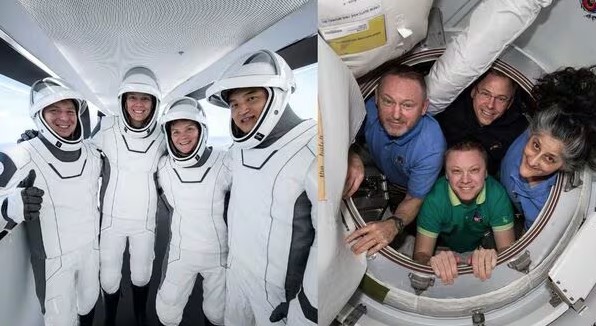A Giant Leap for Plant Growth in Space
The Indian Space Research Organisation (ISRO) has achieved a revolutionary milestone with its Compact Research Module for Orbital Plant Studies (CROPS). As part of the PSLV-C60 mission launched on December 30, 2024, this innovative experiment has successfully demonstrated that plant growth is possible in space. Eight cowpea seeds sent aboard the mission sprouted their first leaves within just four days, marking a significant achievement in understanding how plants adapt and grow in microgravity.
The CROPS experiment was specifically designed to explore the behavior of plants in the challenging environment of space. By studying the effects of microgravity, fluctuating temperatures, and radiation, scientists can gain valuable insights into plant biology beyond Earth. The successful germination of the seeds not only proves the viability of plants in space but also showcases the advanced technological capabilities of ISRO’s POEM-4 platform.
The experiment has gained international recognition for its contribution to astrobotany, a field focused on the study of plant growth in extraterrestrial environments. This milestone signifies a critical step toward sustainable solutions for human space exploration, as plants are considered essential for producing oxygen, food, and water recycling in space missions.
Exploring Space Agriculture with CROPS
The CROPS experiment was conducted on the POEM-4 platform, a module that demonstrates ISRO’s innovative approach to space research. POEM-4, short for PSLV Orbital Experimental Module, makes use of the fourth stage of the PSLV rocket after it completes its primary mission of deploying satellites. This creative reuse of the rocket stage as a research laboratory showcases ISRO’s efficiency and resourcefulness in space exploration.
The eight cowpea seeds carried by the POEM-4 platform were placed in a controlled environment specifically designed to mimic the conditions required for plant growth. Once the seeds were exposed to microgravity and provided with water and nutrients, they began to sprout and develop leaves. This remarkable achievement demonstrates that plants can adapt to the harsh conditions of space, paving the way for further research into growing crops outside Earth.
Understanding how plants grow in microgravity is a complex challenge. Space environments lack the traditional gravitational forces that plants on Earth use to orient their roots and stems. Additionally, limited water availability and exposure to space radiation present unique obstacles for plant development. However, the rapid germination of the cowpea seeds aboard POEM-4 indicates that plants can overcome these challenges under the right conditions.
Astrobotany, the study of plants in space, is becoming an increasingly important field as space agencies and researchers explore the possibilities of long-term human habitation in space. The ability to grow plants in space is essential for providing fresh food, maintaining psychological well-being, and recycling air and water during extended missions. The CROPS experiment is a vital step in this direction, offering valuable data for future advancements.
Collaboration Driving Scientific Progress
The PSLV-C60 mission, which hosted the CROPS experiment, showcased a remarkable collaboration between ISRO, academic institutions, and private organizations. The POEM-4 platform, carrying 24 payloads, facilitated diverse scientific experiments, highlighting India’s growing capabilities in space research and innovation. Among these payloads, the CROPS experiment stood out as a significant milestone in understanding plant biology in microgravity.
The successful germination of cowpea seeds aboard POEM-4 demonstrates ISRO’s dedication to advancing astrobotany and addressing the challenges of plant growth in space. By studying how plants adapt to microgravity, radiation, and limited resources, scientists can develop technologies for sustainable life support systems in future space missions. These findings not only contribute to space exploration but also offer potential insights for improving agricultural practices in extreme environments on Earth.
ISRO’s achievement with the CROPS experiment reflects meticulous planning, engineering excellence, and scientific curiosity. It represents a pivotal step in the quest for sustainable solutions for human space exploration. This mission is a testament to India’s innovative approach to advancing space science and its role in contributing to global efforts to explore the cosmos.




